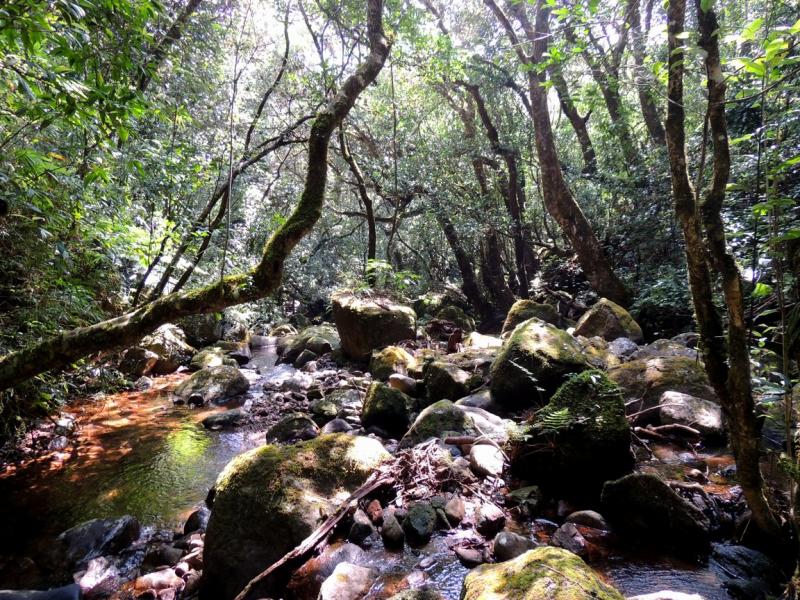Invasive plants are a pervasive problem of most ecosystems, reducing biodiversity and changing ecosystem functioning in irreversible ways. However, little is known about the impacts of terrestrial invasive plants on stream hydrology, especially during the dry season when their effect at the catchment scale is more pronounced. Water availability during the dry season is crucial for ecosystem functioning and human well being. In the Western Ghats, the dry season precedes the South West Monsoon and is the warmest part of the year. Preliminary investigations suggest that the spread of black wattle (Acacia mearnsii), and a mix of Scotch broom (Cytisus scoparius) and Gorse (Ulex europaeus), together referred to as broom, into natural grasslands in the Upper Nilgiris has significantly increased evapotranspiration and reduced dry-season streamflow. This study will attempt to measure the hydrologic footprint of wattle and broom in the Nilgiris South Range in the Upper Nilgiris.
Understanding the relative impact of different land covers on dry season flows can therefore inform land use policy in India, particularly in headwaters of important basins which are under the control of the government and where large scale land-cover modifications can and are being implemented.Reduction of Invasive plants are a pervasive problem globally. Across ecosystems, they have been linked to reducing biodiversity and changing ecosystem functioning in irreversible ways. However there is very little information is available on the impacts of terrestrial invasive plants on stream hydrology.
Government initiatives to restore natural grasslands entail largescale removal of wattle, even as a rapid spread of broom into grassland catchments has been observed. This provides an opportunity to measure the hydrologic impacts of these changes with a focus on dry season evapotranspiration, soil moisture availability, streamflow and water quality. Installation of limited equipment will allow us to conduct catchment level experiments which are rarely undertaken in India.
- To determine the impact black wattle (Acacia mearnsii) and a mix of Scotch broom (Citisus scoparius) and Gorse (Ulex europaeus), on the water budget when compared with natural grasslands in the Upper Nilgiris in terms of:(i) dry season streamflows; (ii) ET demands; (iii) soil moisture.
- To quantify impacts of large scale removal of black wattle on sediment loads in streams.
- To investigate decadal trends in area under major land cover and natural grasslands and forests and their contribution to evapotranspiration at a landscape scale.
Methodology to be adopted
The field component of the study will involve collection of hydro-meteorological measurements using a nested catchments with differing proportions of area under natural grasslands wattle and broom. Water samples for estimating sediment loads will be collected using stage and integrated samplers from near the stream gauges. A mix of field based ground surveys, high resolution satellite imagery and Landsat and MODIS based thermal imagery will be used for the remote sensing component. Transects will be laid in stands of wattle, broom and grasslands. Measurements of soil moisture, in situ leaf water potential will be measured on selected trees.
Expected outcomes
- Understanding the hydrologic impact of expansion of major IAS into natural grasslands with a focus on evapotranspiration, soil moisture and dry-seasons streamflow.
- Effects of large scale wattle removal on water quality expressed as sediment transport due to erosion.
- Better understanding of the spatio-temporal patterns in water balance resulting from changes in vegetative cover in erstwhile natural grasslands in the Upper Nilgiris.
- Scope to extend the methods to additional land covers and regions in the Southern Western Ghats.



